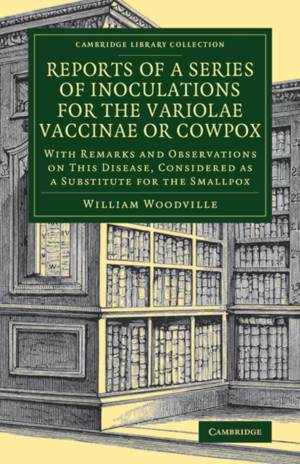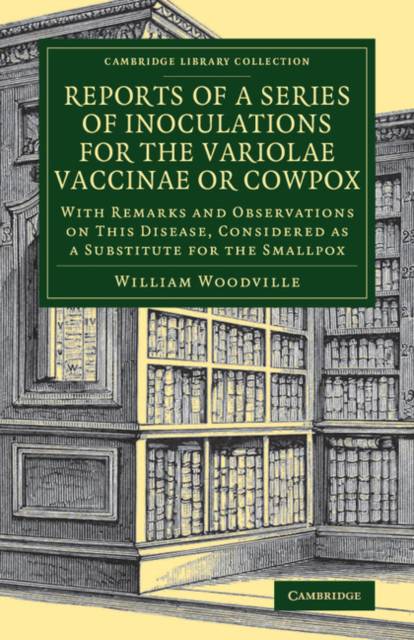
- Afhalen na 1 uur in een winkel met voorraad
- Gratis thuislevering in België vanaf € 30
- Ruim aanbod met 7 miljoen producten
- Afhalen na 1 uur in een winkel met voorraad
- Gratis thuislevering in België vanaf € 30
- Ruim aanbod met 7 miljoen producten
Zoeken
Reports of a Series of Inoculations for the Variolae Vaccinae or Cowpox
With Remarks and Observations on This Disease, Considered as a Substitute for the Smallpox
William Woodville
€ 53,45
+ 106 punten
Omschrijving
The physician and botanist William Woodville (1752-1805), a proponent of inoculation against smallpox, was in 1791 appointed physician to the London Smallpox and Inoculation Hospital. Five years later, Edward Jenner announced his experiments with vaccination - inoculation with the much milder cowpox, which conveyed immunity to smallpox without the attendant risk of catching the often fatal disease. Woodville eagerly pursued trials using vaccination, and published the results in this 1799 work, which describes two hundred cases where patients (usually children) were vaccinated with matter obtained from either cows or other cowpox sufferers, and supplies a table of the patterns of infection from person to person. Most of these patients were later tested by inoculation with smallpox, and none caught the disease. This demonstration of the safety and efficacy of vaccination led to its much wider adoption, to which Woodville gave practical support in both England and France.
Specificaties
Betrokkenen
- Auteur(s):
- Uitgeverij:
Inhoud
- Aantal bladzijden:
- 166
- Taal:
- Engels
- Reeks:
Eigenschappen
- Productcode (EAN):
- 9781108077699
- Verschijningsdatum:
- 27/07/2017
- Uitvoering:
- Paperback
- Formaat:
- Trade paperback (VS)
- Afmetingen:
- 140 mm x 216 mm
- Gewicht:
- 217 g

Alleen bij Standaard Boekhandel
+ 106 punten op je klantenkaart van Standaard Boekhandel
Beoordelingen
We publiceren alleen reviews die voldoen aan de voorwaarden voor reviews. Bekijk onze voorwaarden voor reviews.







